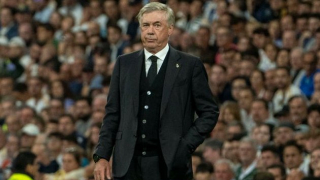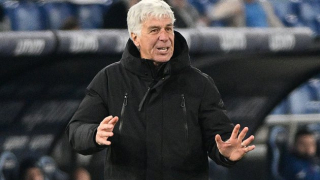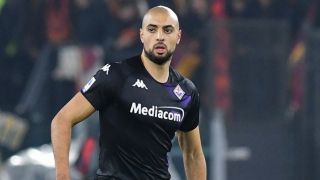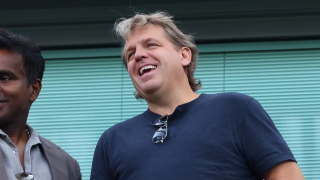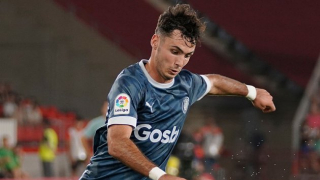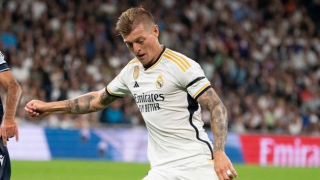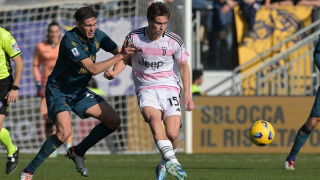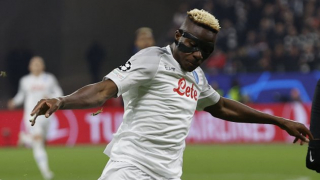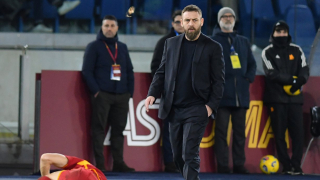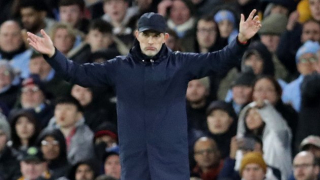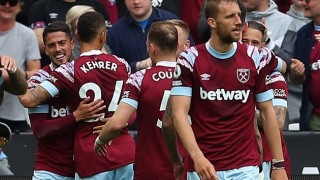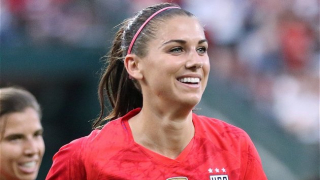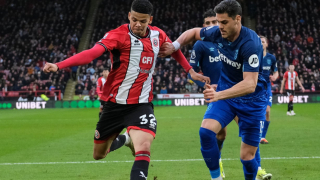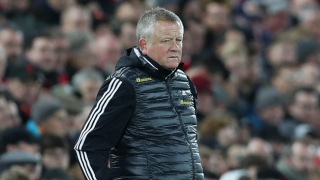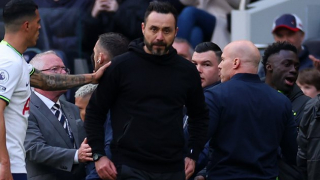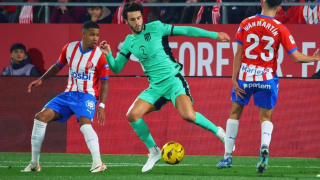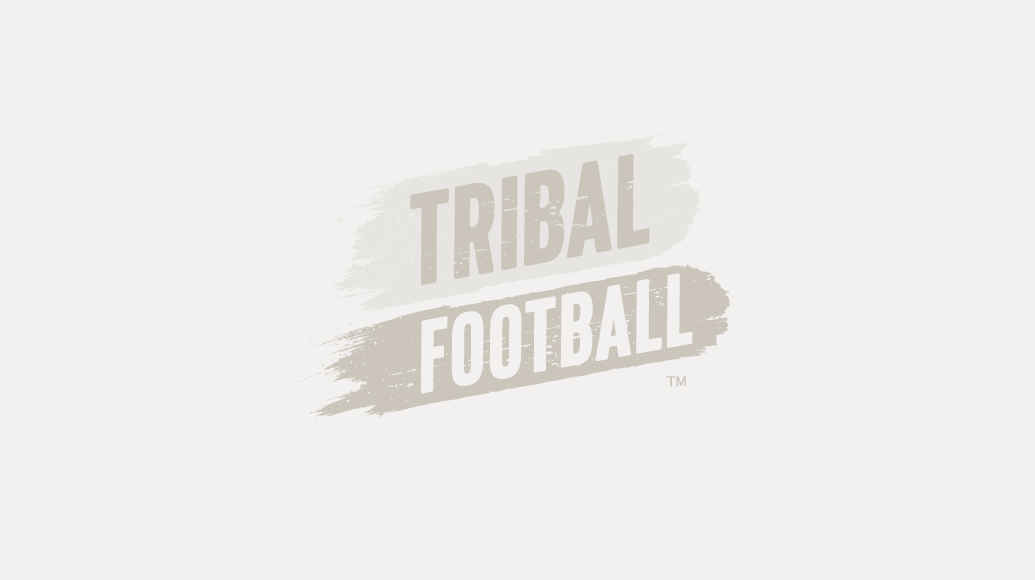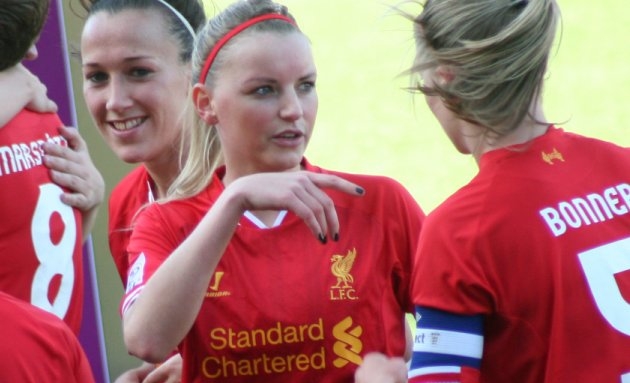This week, we review the Yates Report, the most comprehensive report to date on past abuse of NWSL players by team coaches and administrators.
Though the report is stunning with its documentation of the incidents that players have had to face over years in some cases, there is hope as in a little over a month, there have been some positive changes made to institute standards, policies and an federation level overseeing committee to make sure that this type of behavior is eradicated from the league, while filtering best practices down to amateur and youth soccer, which can be applied to other countries where players have faced emotional, verbal and sexual abuse.
The Yates Report on NWSL Player Abuse—Changes Have to Come
The Yates Report was commissioned by the U.S. Soccer Federation a year ago to investigate the rampant player abuse by NWSL coaches and administrators and was led by former U.S. Deputy Attorney General Sally Q. Yates. She issued her findings in early October of 2022—which shocked many people—but has led the way to some positive steps in protecting players (see below). The Yates Report is a massive 319 pages, comprised of a main report of 179 pages, 54 pages of footnotes and 86 pages of appendices of emails, letters and text supporting the main report findings (see: King & Spalding - Full Report to USSF (kslaw.com). This is one of the most sobering documents that I have ever read, detailing multiple examples of abuse of NWSL players over the years by NWSL team coaches and managers, and some major coverup/feigned ignorance by people in top management/ownership/league director positions within teams, the league and even U.S. Soccer.
Yates and law firm King & Spalding conducted over 200 interviews with players and other officials around the league, with reviews of key documents and emails/texts when available. The report stated, "Our investigative team reviewed over 89,000 documents and other materials produced by USSF, NWSL, teams, players, and other external sources. We also reviewed voluminous public sources and other publicly available materials, including, but not limited to, legislative materials, press releases, news articles, court filings, books, open letters, social media posts, podcasts, and documentaries (Page 21)." The investigators received full support from U.S. Soccer but less cooperation from some of the principal NWSL teams (and particularly coaches) at the center of the investigation.
On page 1 of the Executive Summary, the Yates Report doesn't pull any punches about the scope and pervasive culture within the league that allowed the player abuse to go on for years:
"Our investigation has revealed a league in which abuse and misconduct—verbal and emotional abuse and sexual misconduct—had become systemic, spanning multiple teams, coaches, and victims. Abuse in the NWSL is rooted in a deeper culture in women's soccer, beginning in youth leagues, that normalizes verbally abusive coaching and blurs boundaries between coaches and players. The verbal and emotional abuse players describe in the NWSL is not merely 'tough' coaching. And the players affected are not shrinking violets. They are among the best athletes in the world….In well over 200 interviews, we heard report after report of relentless, degrading tirades; manipulation that was about power, not improving performance; and retaliation against those who attempted to come forward. Even more disturbing were the stories of sexual misconduct. Players described a pattern of sexually charged comments, unwanted sexual advances and sexual touching, and coercive sexual intercourse."
We have reported on the player abuse within the NWSL since Meg Linehan's groundbreaking Athletic story last year uncovered a decade of abuse of players (across multiple leagues) by then North Carolina Courage coach Paul Riley (see last year's review at the time: The Week in Women's Football: The NWSL Coaching scandal and its impact on the league - Tribal Football). Then the day after a fantastic 2021 NWSL Championship Game, the Chicago Red Stars runners-up coach Rory Dames—the only coach in their then nine years in the league to that point—resigned, quickly followed by allegations of verbal and sexual intimidation of players on his team by the Washington Post that even involved players from his junior soccer club (see my story last year: The Week in Women's Football: Washington Spirit claim NWSL title; Kansas City move; NWSL Best XI; - Tribal Football).
I have said before, unfortunately, that after the Riley and Daines stories that we were not done with these abusive incidents and coaching departures and this year we saw Orlando, Houston and Washington all make mid-season coaching changes, with concerns of retribution towards players, verbal abuse and emotional harassment driving those decisions. The Yates Report implies that this abuse goes beyond the NWSL runs from the pro leagues, through colleges (particularly in scouting and camps and this reporter is aware of some cases that have been covered up and minimized in recent years) and even to high school and youth club level.
Much of the focus of the report centered on Riley and Daimes as well as former Racing Louisville head coach Christy Holly (not even making it through a season in their expansion year of 2021), who had previously been fired a few years before by Sky Blue FC and had even been working on an occasional basis with U.S. Soccer's Women's National Teams. The Yates Report brought out new details about the Holly situation, as it had previously not been reported because Racing Louisville and Holly had signed a no-disclosure agreement upon his departure. Yates at times touches on some other unsavory behavior throughout the league, such as Washington's Richie Burke and OL Reign's Farid Benstiti being let go in 2021 following player complaints, as well as some of the well-documented problems with facilities and housing for players, focused on the now defunct Boston Breakers and Sky Blue FC (now Gotham FC)—the report purposely did not do deep dives on these issues in order to get the report out within a year. Some of their details on these player support and training issues included:
"By 2015, some teams had started to rectify their inadequate facilities, but problems persisted at the Chicago Red Stars ("No laundry, no locker room, no showers"), and numerous complaints emerged [from year end NWSL player surveys] regarding playing fields: "We trained on turf nearly every day, despite being told we would be training mostly on grass" (FC Kansas City); "Training fields were poor, but at times very poor," "Trained on too many different surfaces including an elementary school with horrible grass" (Sky Blue); "We should not be allowed to play on such terrible turf fields for our games," and "WNY stadium is the worst quality field in the league" (Western NY Flash) (Page 39)."
Yates lists comments from player surveys and other sources about the abuse they faced:
"Several players on the [Portland] Thorns separately recalled instances in which Riley told a player she was, 'too hot to be a lesbian,' or 'what is she doing, she's not gay,' or she 'isn't a real lesbian.' Another player recalled Riley telling her she was, 'too feminine' to be gay and 'looked straight" (page 70)."
Rory Daimes had multiple examples of abuse and sexually-charged discussions, even with his youth players, that are particularly disturbing (Pages 90-91),
The Yates Report emphasized that the teams, the league and even the USSF did not have procedures to protect the players, that the abuse in the NWSL was systemic and players feared for their jobs and career if they called out the abuse. When alerted about the abuse, league and federation officials did not adequately address it or alert new owners as coaches were shuttled around the league:
"Soccer's culture of protecting 'open secrets' that many have heard, but few feel responsible to report, also normalized coaching misconduct and permitted teams, the NWSL, and USSF to avoid addressing the misconduct. Although certain players doggedly reported misconduct, other players and staff were hesitant to report because it was 'not their story to tell' and they did not want to report 'rumors.' The teams', League's, and Federation's repeated failure to address misconduct that seemed to be widely known—or at least widely suspected—also caused some to believe that reporting would be futile. Many assistant coaches, front office staff, and others feared retaliation for coming forward, both in connection with their current roles as well as opportunities they may have in the future.
"They feared the consequences that might result from their elimination from a network that seemed to create professional or college soccer careers. Many expressed these concerns even in connection with their participation in this investigation. Players were also repeatedly enlisted in the effort to keep the league [the NWSL] afloat by protecting it from scandal and were told to be grateful that they had an opportunity to play professional soccer at all. The threat of team or league failure was acute and persistent. The NWSL was the third attempt to field a women's professional league and was established with low capital requirements to ensure the league had eight teams. Many teams seemed to be one bad season away from shuttering. Players reported being told by Federation leadership and certain team owners that the league was not commercially successful enough to warrant further financial investment, and that the only way to ensure the League's survival was for players to support the League. (Pages 15-16)"
The report also states:
"The NWSL's institutional weakness made it an ineffective check on teams that were unwilling to remove abusive coaches. Teams and individuals occasionally 'checked the box' by providing information to others, such as USSF, the NWSL, or SafeSport [a non-profit organization that is tasked with protecting minors and amateur athletes in Olympic sports, but which Yates describes as underfunded and not timely in its investigation efforts], but they failed to ensure that information was acted upon or that other players were protected—even when the coach moved on to other teams in the league (like Paul Riley and Christy Holly) or simultaneously coached or managed youth clubs (like Rory Dames and Paul Riley) (Page 13)….In general, teams, the NWSL, and USSF appear to have prioritized concerns of legal exposure to litigation by coaches—and the risk of drawing negative attention to the team or league—over player safety and well-being. Certain teams also cloaked information about coach misconduct in attorney-client privilege, non-disclosure agreements, and non-disparagement clauses. (Page 14)."
The Yates Report information doesn't excuse the lack of follow-up to the players' concerns but does provide an understanding of why this 'don't discuss this' approach became the default mode for any player complaints about abuse or even improved conditions with their housing, training infrastructure, etc.
Yates continues:
"Inappropriate conduct was not just directed at players. For example, allegations surfaced that, while at the Utah Royals, former head coach Craig Harrington made inappropriate sexualized jokes and comments to staff, contributing to a toxic environment at the club. During his tenure, Harrington told an employee a 'joke' about her having sex in a minivan she had recently purchased, which the employee reported to human resources. A player also described an incident in which Harrington commented to both the player and a female assistant coach that, 'taking care of kids is a woman's job.' Harrington explained that the above comments (the second of which he did not specifically recall) were made flippantly and were not meant to be hurtful. Harrington also noted that he apologized to the employee about the minivan comment. In September 2020, the Royals placed Harrington on administrative leave, and subsequently dismissed him in November 2020. The club did not provide the basis for its decision, only that it was unrelated to the broader Royals investigation (Pages 46-47). "
As a follow-up, the same thing happened in Mexico after Harrington took a job coaching powerhouse side Club America Women. He was suspended for three games in January of this year for using, 'improper language' during a Liga MX Femenil match against Monterrey. He was dismissed in May of this year after his side was eliminated at the quarterfinal stage of the playoffs. Harrington, a native of England who has also coached the Turks and Caicos men's national team, will no doubt land somewhere else abroad unless FIFA and the regional confederations set up regulations and procedures to permanently ban these coaches and administrators who have one verified incident, as U.S. Soccer and the NWSL have begun to do (see more below).
Reactions to the Yates Report
U.S. Soccer president Cindy Parlow Cone, a former national team player and NWSL head coach in year one in Portland, told the media after the report's release, "This investigation's findings are heartbreaking and deeply troubling….As new things come up, I just found it really maddening that players had to go through this….Many of the players in this report I know, many of them I've coached."
The report also revealed that Cone herself had been a victim of abuse by the President of Business for the Portland Thorns and Timbers—Mike Golub—who was fired after the report was released along with President of Soccer/ex-GM Gavin Wilkinson, which should have happened when their involvement downplaying Riley's termination in 2015 with glowing recommendations was revealed last year by Meg Linehan.
Cone said that Golub asked her, "What's on your bucket list besides sleeping with me?" Cone told him to never to speak to her like that again and he didn't. I always wondered why Cone left the Thorns after one successful season in which the team won the first NWSL Championship. How much did the culture play a role in her departure—when there is still a dearth of women head coaches in the league to this day—is a question that only she can answer, but she has been a huge asset to U.S. Soccer since joining the Federation in 2019 as Vice-President.
U.S. National Team and Olympique Lyonnaise midfielder Lindsey Horan, who questioned OL Reign's hiring of Benstiti in the first place as he coached her at Paris Saint Germain early in her professional career and made repeated demeaning comments about her weight, told the New York Times, "This is not just in the N.W.S.L. This is women's soccer; this is women in general. We have these problems all over the world. I sit here and I'm like: 'It's not done. This is all over the world.' Being a player in Europe right now, I know that." U.S. international Megan Rapinoe added, "This report has come out in our country. But the reality is it could be any country in the world."
Mana Shim, copied a joint statement on her Twitter on October 3, 2022, along with Sineed Farrelly (also a target by Riley's sexual predatory behavior and emotional abuse) and Erin Simon (who faced the same from Holly in Louisville)—who all detailed horrific examples of the abuse they face in the Yates Report—summarized their feelings about what had taken place in the NWSL:
"There have been too many years of inaction and too many empty promises made while players suffered at the hands of the league. No one involved has taken any responsibility for the clear role they played in harming players—not the teams, not the league and not the federation. They chose to ignore us and silence us, allowing the abuse to continue.
It is time for action, accountability and change. Owners who have driven a culture of disrespect, who are complicit in abusing their own players, have no place in this league and should be removed from governance immediately. This will be the first of many necessary steps to finally hearing our voices and keeping our players safe."
Note: Simon, who has been capped by the U.S. at the U-23 level, joined the WSL's Leicester City in July of 2022; she requested a release from her contract with Louisville early in the 2022 campaign in order to pursue a club in Europe.
Tyler Greever, of WHAS Channel 11 television station in Louisville, reported on November 16, 2022 on the culture of abuse that Holly instituted along with some other disturbing allegations that were not in the Yates Report, after talking to one current and several former Racing players about Christy Holly's short but devastating tenure with the club. Greever revealed that players invited to preseason training camp (typically 8-15 depending on the club) had to pay for their own housing and meals and even for MRIs after an injury. In addition, the club didn't sign any of these players until a few days before the season started in 2021, so they were kept on for 9 weeks at their own expense, likely to provide additional bodies for practice sessions.
Unfortunately, they are not the only team in the NWSL's history that encouraged unpaid non-contract players to stay around through camp and even into the season, as players have told me about this practice which dates back several years. Clearly the Louisville treatment of players goes far beyond the abusive and sexualized culture that Holly built and maintained during the club's expansion season in 2021. The Racing Louisville organization will be under the microscope to make sure that they institute the changes that they have alluded to in their statement (see above) after the Yates Report was released, policies which need to be applied to all the teams in the league (See Yates Report Recommendations below).
Positive Initial Improvements as a Result of the Yates Report
Some of the changes in the league since the Yates Report was published have been positive, with Chicago Red Stars majority owner Arnim Whisler announcing that he was handing over operational control to their executive team and removing himself from a governance role within the NWSL Board of Governors. He treated Rory Daimes for years as a protected species, despite constant reports of his abuse, and accused players [including one USWNT star] who complained of having an 'axe to grind" with Daimes. There were days when Daimes was moody and surly to everyone he encountered, including the media, which was minor compared to the sexualized environment that he created on his team.
For the Thorns, owner Merritt Paulson stepped down as CEO and is under pressure to sell his franchises [the Thorns and the MLSPortland Timbers] because of a negative club culture towards women that was investigated by the state newspaper The Oregonian [Portland]. The potential loss of some key sponsors, such as Alaska Airlines—who came on when the Timbers came into the MLS in 2011—and iconic local cheese and ice-cream company Tillamook, who are seriously considering their future sponsorship of the organization, while still stressing their support of the players, is driving changes at the team level.
Racing Louisville felt bad about the revelations in the Yates Report and admitted that hiring Holly was a mistake—not addressing the fact that there had been reports about his abusive behavior while at Sky Blue and his relationship with the team captain at the time, which were known even to a number of media who covered the league—and released a press release that said:
The U.S. Soccer-released Sally Yates report, which was published earlier this week, served as a harsh reminder that appointing Christy Holly as Racing Louisville FC's first coach was a mistake. We have learned from that mistake, and we apologize to Erin Simon, to our players past and present and to our fans.
We commend Erin for her bravery in coming forward as part of U.S. Soccer's investigation. And while our former coach was terminated within 24 hours of us being alerted to the behavior, we know that wasn't enough and that we failed our locker room by creating a space where this behavior could occur.
We have worked hard every day since then to ensure a safe environment that puts players in a position to succeed. This includes implementation of club-wide anonymous reporting services and a re-evaluated hiring process for staff.
We will cooperate with the ongoing NWSL/NWSLPA joint investigation and welcome recommendations to improve our organization for the betterment of players. The Joint Investigative Team may be contacted at [email protected] or you may reach out to the NWSL or NWSLPA directly or through any other club and league reporting channels.
We are not the same club that we were in August of 2021. We now owe it to our players and community to prove it.
James O'Connor
President, Racing Louisville FC
The league and NWSLPA are doing their own joint investigation which we hope includes more information about the 2022 Houston, Orlando and Washington situations.
Former NWSL Commissioner Jeff Plush, who led the league for three seasons during the 2014-2016 seasons, has lost his current job as CEO at the U.S. Curling Federation. Though he did get the league on a television network—Lifetime, which was not a good ft for so many reasons—he seemed to be an absent commissioner and an overall bad selection. Indeed, the report paints him a very bad light, including his refusal to cooperate with the investigators at all. Mana Shim had informed Plush about Paul Riley's sexual harassment of her but Plush did nothing. Plush also had access to annual player surveys that talked about Daimes and Riley's behavior but these coaches survived—Yates reported that Plush passed on the survey findings to U.S. Soccer, which at that time was the major funding source and headquarters for the league—a classic 'shove the problem off and hope it goes away' tactic.
Plush was forced to resign his current job as CEO of the USA Curling Federation at the end of October 2022, which had reversed course after two weeks before announcing that they were standing behind him after the Yates Report initially came out, which they also did a year ago after Meg Linehan's Athletic article on Paul Riley. A number of member curling clubs led the push to oust Plush. Again sponsorship pressure is so crucial and helpful, as former sponsor Goldline Curling said that it would not consider renewing its relationship with USA Curling, "until we can see our values reflected in that organization."
Some other positive steps include Mana Shim becoming the Chair of U.S. Soccer's Participant Safety Taskforce, which was created following the report's publication, with Shim explaining:
"I've accepted a job as Chair of the new Participant Safety Taskforce at U.S. Soccer because there's still so much that needs to be done when it comes to changing the culture of soccer in this country. I love this sport, and I believe we have an opportunity in this moment to protect players and set a new standard for all sports. We don't have any time to waste.
"Sally Yates's report made it clear that, for far too long, leaders across the soccer ecosystem—including at U.S. Soccer—have not taken responsibility for protecting players. But I believe in the capacity for change. As leader of the Taskforce, I am committed to ensuring not only that Yates's recommendations are implemented, but that we push beyond them. We need to find the root causes of our sport's systemic failures and take action at every level—from the youth game to the professional game.
"I'm confident that, in Cindy [Parlow Cone] and JT [Batson—recently appointed as the General Secretary], U.S. Soccer has the leadership that will be essential to supporting my work, and we've already begun the process of identifying stakeholders from every level of soccer to be part of the Taskforce. I'm deeply appreciative of the cooperation and willingness to do the hard work that we've already seen from leaders across soccer—including at the NWSL and NWSLPA. I'm honored to play a leadership role as we move forward."
The Participant Safety Taskforce will convene leaders in soccer at all levels across the country to coordinate efforts to implement the Yates Report's Recommendations (see below) and to ensure increased clarity on conduct-related policies and procedures. The Taskforce will have more information soon on its mission, membership roster and timeline for progress. The Federation is lucky to have Shim involved. Besides playing with the Timbers and Houston Dash in the NWSL and in Japan and Sweden along with the U.S. U-23 national team, she has a law degree from the University of Hawaii and has done work on sexual abuse cases as a member of the public defender's office in Honolulu; she also was as an assistant coach at San Jose State, where she gained a new understanding of the power coaches can have over young players.
The real toxic layer that needs to be investigated is the youth game and how much abuse is going on there. Bans by teams and organizations for abusive behavior must be quickly escalated to the federation, regional confederation and FIFA levels to ensure that these abusers do not emerge with other teams in the U.S. or overseas (see Harrington example above).
The NWSL had a record attendance this season (averaging 7,894 fans, which surpassed their previous record of 7,337 in 2019 when they gained a boost after the U.S, won the 2019 Women's World Cup in France), their Championship Game was televised in prime time on Saturday night on a major network (CBS) and welcomed two phenomenally successful expansion sides on and off the field in San Diego and off the field for Angel City FC in Los Angeles.
The concern is what is the impact of the Yates Report on possible expansion, with plans to add two more clubs in 2024 with the possibility of the Chicago Red Stars and the Portland Thorns undergoing ownership changes. Will all of the 30 plus cities that have shown interest in an expansion franchise back off after the Yates Report? (see more on NWSL expansion interest from various markets in: The Week in Women's Football: NWSL Review Part 1; Thoughts on future expansion; Berman responds - Tribal Football).
Yates talks about 'reputational risk' for new NWSL investors and discussed a 2018 email from a potential investor for the NWSL's now-defunct Boston Breakers, who expressed concerns over inappropriate owner, staff and coach relationships with players in the league. This individual, whose name was redacted in the report, wrote in an email, "Now I am afraid I will place my financial future and my reputation in jeopardy should this kind of conduct be widespread or leveraged against fellow owners or team leaders from my organization or other organizations." Less than a month later, the Breakers franchise was shut down.
However, maybe the Yates Report will not discourage new investors as the Minnesota Aurora, a fantastically successful first year W-League franchise, surprisingly announced on November 2 that they were bidding to join the NWSL in 2024, rather than the USL's new Super League, a division II loop set to start next year (see more at: The Week in Women's Football: Liga MX Femenil Clausura review; Oakland joins W-League; Moscato coaching Tigres - Tribal Football). During the championship game Final in D.C., NWSL Commissioner Jessica Berman said that she expected 5-10 bids by their early November deadline, but this reporter has not seen an updated list of candidate cities, though Salt Lake City is thought to be a shoe-in, to replace the Utah Royals—who were a huge success at the gate but team culture and abuse allegations forced the previous ownership out and the club was folded, though most of the players became part of the new Kansas City Current for the 2021 season.
Below we present the full recommendations from the Yates report, which should be vital reading for any administrator or coach involved with women's football around the world.
Transparency
"Abusive coaches were able to move from team to team, and even to USSF, because the teams, the League, and USSF failed to identify misconduct and inform others when necessary. Further, the teams, the League, and the Federation generally appear to have prioritized avoiding defamation or employment lawsuits from coaches over the safety of players elsewhere in the League. To prevent this cycle from repeating, it is essential that misconduct is not concealed with, 'thank you for your service' press releases, and that teams hiring coaches have accurate information about a coach's history. To that end:
1. Teams should be required to accurately disclose misconduct to the NWSL and USSF to ensure that abusive coaches do not move from team to team.
1.1 Teams should timely notify USSF and the NWSL when a coach is terminated, disciplined, or his/her contract is not renewed, and provide accurate reasons for the change in employment.
1.2 USSF should establish a database containing employment history for all professional coaches that includes SafeSport complaints and findings; violations of USSF or the NWSL policies; and accurate information concerning any discipline or change in employment. This information should be available to teams when considering new hires.
1.3 The NWSL and the teams should eliminate the use of non-disclosure and non-disparagement agreements that act to shield information about abusive coaches.
1.4 USSF should make public a list of individuals disciplined, suspended or banned by USSF, a USSF Organization Member, or SafeSport."
Accountability
"There are no guidelines regarding a team's necessary due diligence prior to hiring a coach. In addition, USSF currently has limited direct authority to sanction coaches for misconduct. While the Federation's authority is limited, it is not nonexistent. Given the failure of the teams and the League to adequately vet or discipline coaches for misconduct, USSF should more aggressively use its authority to weed out problematic coaches. One avenue is through the coach licensing system. Coaches licensed by USSF are considered 'Participants' and are subject to SafeSport's jurisdiction. Under USSF's obligations as a member of CONCACAF, and as disseminated to the NWSL through the Standards, all coaches must hold a USSF "A" coaching license within two years of appointment. But the Federation has not consistently enforced this requirement.
Accountability: Putting Teeth in the Licensing Requirement
2. USSF should require meaningful vetting of coaches and, when necessary, use its licensing authority to hold wrongdoers accountable.
2.1 USSF should transform its current coach licensing system from a "diploma" to an accreditation program requiring annual recertification.
2.1.1. USSF should require USOPC-compliant background screenings for all licensed coaches, as well as a review of disciplinary records from organizational members and SafeSport.
2.1.2. USSF should require that coaches annually attest to the accuracy of certain background information—for example, that they have not been the subject of any prior substantiated complaints of misconduct, and that they have adhered to applicable standards of conduct, including anti-harassment and retaliation policies—and inform coaches that false statements on licensing and application documents is a basis for termination.
2.2. USSF should enforce the NWSL coach licensing requirement, granting waivers sparingly and for limited periods of time.
2.3. USSF should suspend or revoke the licenses of those who commit misconduct and discipline Organization Members (including the NWSL) that fail to act on misconduct.
2.4. To ensure abusive coaches do not re-enter the landscape, USSF should enforce its individual registration requirement and expand the program to require registered individuals to provide USSF and/or Organization Members with all relevant affiliations."
"No organization took ownership over player safety. In the few instances where teams, the League, and the Federation examined coaching conduct, the misconduct was minimized by siloing allegations—in other words, no one looked for or recognized patterns of misconduct as they emerged. Organizations and individuals occasionally 'checked the box' by providing information to others, such as USSF, the NWSL, or SafeSport, but failed to ensure that information was acted upon or that other players were protected—even when the coach in question moved on to other teams in the League or coached youth teams. Amidst this lack of accountability, the League and the Federation failed to establish investigation policies and protocols establishing how and by whom investigations of abuse would be conducted. To this day, the Federation still lacks enforcement mechanisms sufficient to require team or NWSL compliance with investigations or disciplinary measures.
Accountability: Requiring Rigorous Investigations
3. USSF should require the NWSL to conduct timely investigations into allegations of abuse, impose appropriate discipline, and immediately disseminate investigation outcomes.
3.1 USSF should require the NWSL to investigate allegations of misconduct according to an investigation protocol approved by USSF that ensures both timely and thorough investigations and disclosure of findings to relevant teams and USSF.
3.2 Teams should not investigate themselves when there is an allegation of misconduct involving player safety, including verbal or emotional abuse, or sexual misconduct.
3.3 The NWSL should require all owners, staff, and players to participate in investigative interviews and produce relevant documents as a condition of employment (absent a trauma-informed reason).
3.4 If an individual or team is not fulfilling its obligation to fully cooperate in an investigation, the NWSL and USSF should intervene consistent with their oversight authority."
Clear Rules
4. "USSF should adopt uniform and clear policies and codes of conduct that apply to all Organization Members and are found in [a] single place on USSF's website.
5. USSF should require the NWSL to conduct annual training for players and coaches on applicable policies governing verbal and emotional abuse, sexual misconduct, harassment, and retaliation.
5.1 The NWSL's training should clearly delineate behaviors that cross the line in real life scenarios, and educate players and coaches about harassment, bullying, abusive behavior, and retaliation.
5.2 Training for players should include detailed descriptions of their rights, protections, and options for reporting inappropriate conduct."
Player Safety and Respect
"No organization or individual "owned" player safety. USSF employees often have information relevant to player safety that does not have a clear destination—identifying an individual responsible for implementing real reform at the team, League, and Federation levels will require focus, accountability, and resources. To that end, we recommend that:
6. USSF, the NWSL, and teams should each designate an individual within their organizations who is responsible for player safety.
6.1 USSF should establish a USSF Player Safety Officer to oversee and monitor the implementation of USSF conduct policies and reporting mechanisms, and make regular reports to the Board regarding player safety.
6.1.1. The Player Safety Officer should work with Organization Members (including the NWSL Player Safety Officer) and USSF's Chief Legal Officer and Human Resources function to support player safety (including review of SafeSport inquiries, professional league complaints and investigations, and other indicators), evaluate and recommend changes to relevant policies, recommend action where appropriate, and hire necessary personnel in support of those efforts.
6.1.2. USSF should require the Player Safety Officer to submit quarterly Board reports regarding player safety metrics, Organization Member compliance, and implementation of reforms geared toward player safety.
6.2 USSF should require the NWSL to establish a Player Safety Officer responsible for ensuring team compliance with player safety standards.
6.2.1. The NWSL Player Safety Officer should be available to receive complaints of misconduct or abuse, monitor team implementation of safety standards, coordinate relevant training, address retaliation concerns, and provide regular reports to the NWSL board.
6.2.2. In addition, the NWSL Player Safety Officer should be in regular contact with USSF's Player Safety Office and should submit annual reports that include relevant detail regarding the volume and severity of player complaints.
6.3. Teams should identify an individual within their organization responsible for player safety, with the goal of ultimately having a separate player safety officer at each team."
USSF should strengthen player safety requirements in professional leagues.
"Multiple players reported that they were discouraged from raising concerns and repeatedly told to be "grateful" that they had an opportunity to play professional soccer….While there are a number of specific reforms that are important, as a guiding principle, teams should be required to provide players with a safe environment that reflects their status as professionals. Specifically, we recommend that:
7.1. USSF should consider whether the current capital requirements for the NWSL owners are sufficient to ensure all owners are financially committed to the NWSL and are providing a professional environment that is safe and respectful of players.
7.2. USSF should enhance its current annual review of professional leagues to include a review of team culture and coaching practices, as informed by sports psychologists and other relevant experts.
7.3. USSF should enforce its Professional League Standards and impose meaningful penalties on professional leagues that fall short of standards.
7.4 Teams and the NWSL should take measures to ensure coaches do not have undue control over players. For example, a team's head coach generally should not serve in other roles of authority, like General Manager. Nor should coaches have sole authority over player trades, housing, medical decisions, or other aspects of a player's life off the field."
Player Feedback
"Players repeatedly raised concerns regarding misconduct to teams, the NWSL, and the Federation, but those complaints generally went unaddressed. Concerns brought directly to team ownership were often dismissed as coming from disgruntled or 'difficult' players with an agenda. Even worse, the NWSL went through the motion of occasionally conducting player surveys, but while the surveys provided a potentially meaningful way for players to raise issues and report concerns, the surveys were inconsistently issued, results were ignored or not scrutinized, and important feedback was not distributed to everyone who should have seen it. Another important avenue for player feedback is through an anonymous reporting line. In the wake of The Athletic article, reporting lines were established last year and should be maintained. Players should have opportunities to provide feedback directly to teams through Player Safety Officers at the teams, the League, and the Federation. Additionally, we recommend that:
8. USSF should require the NWSL to implement a system to annually solicit and act on player feedback.
8.1. USSF should require the NWSL to conduct and review player surveys on an annual basis that include questions about coaching conduct, and the NWSL should share anonymized results with relevant teams and players. 8.2. USSF should require the NWSL to provide the complete survey results to the USSF Player Safety Officer, identify to USSF surveys that raise issues of abuse or retaliation, and provide a plan of action.
8.3. USSF should require the NWSL to maintain its confidential reporting line and timely report to USSF any allegations of abuse or retaliation."
Youth Soccer
"The scope of our investigation was limited to allegations of misconduct in the NWSL. Several NWSL coaches whose conduct was at issue also have deep connections with youth soccer. During the course of our investigation, we confronted multiple historical reports about misconduct in youth soccer. Coaches and Federation officials have observed that verbal and emotional abuse is common in youth soccer, and players told us that verbal and emotional abuse in youth soccer made it more difficult to determine what was out of bounds in the NWSL. We recommend that:
9. USSF should collaborate with its youth member organizations and other stakeholders to examine whether additional measures are necessary to protect youth players."
Discipline
"None of the coaches detailed in this report are currently still coaching in the NWSL, although we recommend that USSF take steps to prevent their future participation in USSF landscape. Likewise, the relevant individuals at USSF and the NWSL in leadership positions during the relevant period are no longer with USSF or the NWSL. There are, however, team owners and executives referenced in this report who remain in the League. Consequently, we recommend that the NWSL, which has governing authority over NWSL teams, owners, and personnel, determine whether disciplinary action is appropriate for any of these owners or team executives, in light of our findings and the findings of the NWSL/NWSLPA Joint Investigation.
10. The NWSL should determine whether discipline is warranted in light of these findings and the findings of the NWSL/NWSLPA Joint Investigation."
Intersection with SafeSport
Note: SafeSport is a national organization but is underfunded and does not come across well in this report.
11. "Teams, the NWSL and USSF should not rely exclusively on SafeSport to keep players safe and should implement safety measures where necessary to protect players in the USSF landscape.
11.1. Given the patchwork of its jurisdiction and how infrequently SafeSport makes findings or takes action, teams, the NWSL and USSF should not rely solely on SafeSport to keep players safe.
11.2. Teams and leagues should be primarily responsible for protecting their players from abuse. When necessary, however, USSF should conduct safety inquiries and implement safety planning to protect players in the USSF landscape, consistent with SafeSport guidelines.
11.3. Unless specifically prohibited by the SafeSport Code, USSF should disseminate misconduct information to all relevant parties, including Organization Members, leagues, and teams potentially affected."
Implementation of Recommendations
12. "The Federation should determine the most effective structural mechanism, whether through an existing board committee, special committee or task force, to evaluate and implement recommendations, as well as to consider further reforms in support of player safety."
Tim Grainey is a contributor to Tribal Football. His latest book Beyond Bend it Like Beckham is on the global game of women's football. Get your copy today.
Follow Tim on Twitter: @TimGrainey

